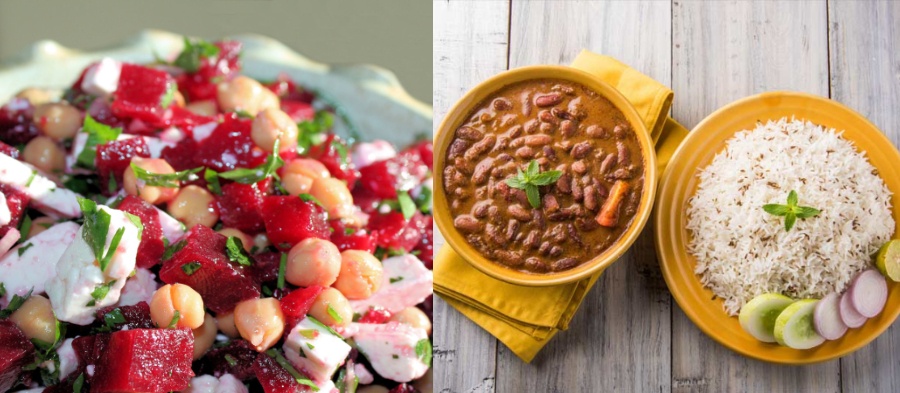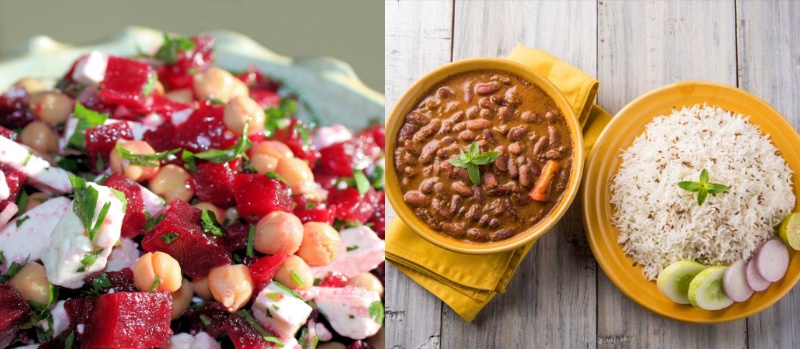
[ad_1]
The practice of skipping meals, especially lunch and dinner, is becoming increasingly popular, with many individuals convinced that it can expedite weight loss. One primary motivation for skipping meals is the belief that it would help reduce overall calorie intake at the end of the day and that can lead to weight loss. However, the validity of this strategy remains a subject of debate: is there any scientific evidence supporting the effectiveness of skipping lunch in particular, or is it merely a myth? Let’s find out:


Skipping Lunch for Weight Loss: Fact or Fiction?
Have you heard this saying, “Eat breakfast like a king, lunch like a prince, and dinner like a pauper.” But in India, people eat like breakfast like a prince due to time crunch and eat lunch like a king! Lunches in India tend to be heavy due to cultural reasons and not to forget separate lunch timings that last anywhere between half an hour to one hour! Lunch is considered the main meal of the day in many regions, it’s often a time for families and colleagues to come together and enjoy big, hearty, and flavorful dishes.
Here are some more reasons why lunch is an important meal in India:

1. Cultural Significance: As mentioned above, in many parts of India, lunch is considered the main meal of the day, especially for families and working individuals. It’s often seen as a time for family members or colleagues to come together and enjoy a big meal. For people who work in offices, mainly in a 9 to 5 time slot, there’s always a half an hour to one hour lunch break which gives them enough time to enjoy big meals. As a result, lunches tend to be more elaborate and hearty compared to breakfast or dinner.
2. Multiple Carb-Heavy Dishes on the Lunch Platter: Traditional lunch in India is carb heavy with dal, chawal, roti, veggies, sweets, and more on the platter. This makes lunch a high-calorie affair.
3. Climatic Factors: In hotter regions, people may prefer heavier lunches as they provide energy and sustenance to cope with the heat.
4. Work and Lifestyle: For many working professionals in India, lunch breaks last for an hour, usually from 1 to 2 pm, and there’s a gap between the next meal, i.e., dinner. So, people usually tend to eat a heavy lunch to sustain their energy levels and fuel them for the remainder of the workday.
So, with so many factors working against lunch, the obvious strategy would be to skip lunch as a mean to cut down significant calories, but then, it’s not an effective one. Skipping lunch can disrupt the body’s natural hunger cues and lead to overeating or binge eating later in the day, particularly during dinner. This can occur because prolonged periods without food can increase feelings of hunger and drive individuals to consume larger portions. Additionally, when individuals skip meals, especially lunch, they may arrive at the dinner table with a ravenous appetite, making it more challenging to practice portion control or make mindful food choices. They may continue to munch on snacks even after dinner to compensate for skipping lunch. Eating a heavy dinner, especially when the body’s metabolism has slowed down in the evening, can lead to the storage of excess calories as fat. Since the body’s energy needs decrease later in the day, consuming a large amount of food during dinner may exceed these needs and contribute to weight gain over time. Furthermore, eating a heavy meal close to bedtime can hamper digestion and disrupt sleep quality.
Therefore, while skipping lunch may seem like a way to reduce a lot of calories, it can ultimately backfire by promoting unhealthy eating patterns and weight gain in the long run. That’s why it’s important to pick the right kind of meals for lunch that would support metabolism and weight loss, instead of skipping it altogether. Find such elaborate diet plans on the Rati Beauty diet. Subscribe to the Rati Beauty app to access all our weight loss diet plans.
Would Exercising on Empty Stomach Burn More Calories?
8 Surprising Sources of Empty Calories you May Be Overlooking
[ad_2]






